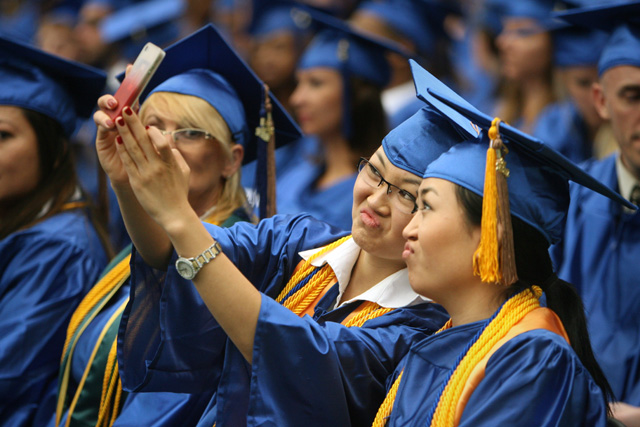Three Education Innovations That Could Increase Economic Mobility
Chris Farhat /
Will your typical public high school education get you a job in today’s economy? The possibilities seem limited. According to the American Diploma Project, more and more employers find high school graduates lack basic skills needed to succeed in the workforce. And government regulations that reduce the flexibility within public schools may be part of the problem.
According to Moody’s analysts, most traditional public schools lack the capacity to institute program changes and allocate resources to better cater to those interested in career training, as opposed to college. Will public schools find a way to offer students an alternate pathway towards upward economic mobility? Some schools are starting to show encouraging progress by partnering with local businesses.
In collaboration with local colleges and New York Public Schools, IBM in 2011 launched a 6-year high school called P-Tech that not only enables students to earn an associate’s degree in computer science, but also, if they choose, a job at IBM after graduation. Students either can go straight into IBM or choose to go to college and get their bachelor’s degree. Other companies have seen the success of IBM and launched similar programs in Chicago and New York. These companies partner with public high schools and local colleges to provide guidance on curriculum, mentoring, worksite visits, internships and, most importantly, how to put graduates first in line for a job with these companies.
Time magazine calls P-Tech “the school that will get you a job.” In an attempt to “[blur] the line between high school and college,” IBM created a playbook for communities seeking a similar joint venture that outlines how to identify and coordinate with potential business partners to help high school students gain knowledge skills necessary to enter the workforce.
Texas has a similar approach. At the award-winning Townview Center—a mega-campus featuring six independent career academies—students in the Dallas Independent School District benefit from a partnership with about 50 large and small businesses that includes mentoring, internships and other resources. No public school in the nation has more minority students passing the advanced placement Calculus test than Townview’s School of Science and Engineering—a partner of Texas Instruments. Students there are learning valuable technical skills such as proficiency in Javascript—a widely used programming language—during a basic course their freshman year.
In Miami-Dade County, Fla., magnet schools are making similar progress. According to an article in the New York Times, “Principals and recruiters from magnet schools attend numerous fairs, talking to families and distributing glossy brochures” to provide the sort of individualized career focus not typically found in traditional public schools. These magnet schools, “admit students from anywhere in the district and focus on themes like art, law or technology.” Just like Chicago, New York, and Dallas, each student gets an internship at a participating business or organization.
These three models offer encouraging examples of educational innovation that can increase the economic mobility of today’s youth. We don’t know if the success of these programs can be replicated in every community. But we do know businesses across the country have grown increasingly eager to help. Successful partnerships require local knowledge of the struggling community – above all, a willingness on behalf of unions, school boards and administrative officials to share the responsibility of educating our nation’s young people with businesses and organizations outside the system. Are they ready to change?

